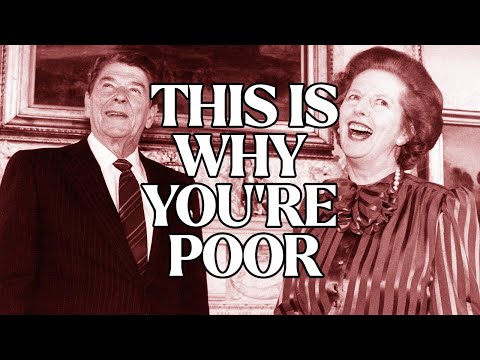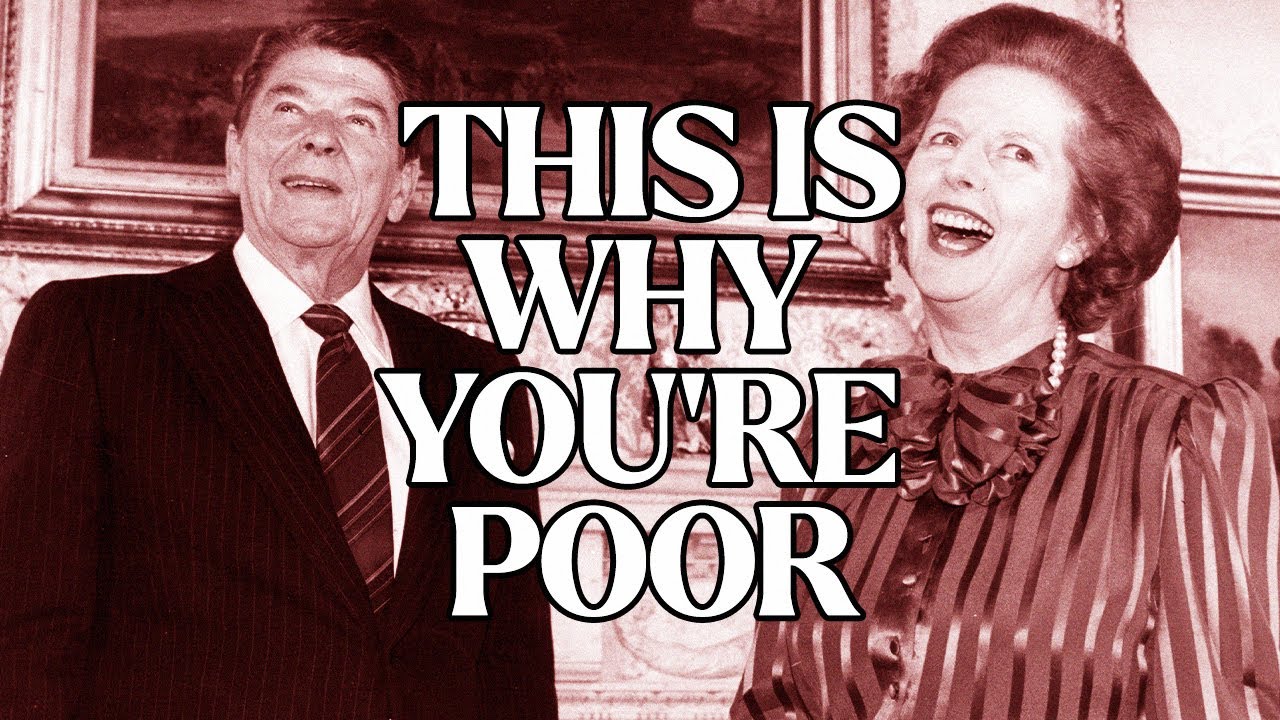Neoliberalism – a captivating ideology that has shaped the world we live in today. Delve into the fascinating realm of neoliberalism and unlock a deeper understanding of its impact on politics, economics, and society. This thought-provoking concept challenges traditional norms and advocates for free markets, individual liberty, and limited government intervention. Explore the intricate web of ideas encompassed by neoliberalism and discover how it has influenced global policies, trade, and social structures. Uncover the secrets behind its rising popularity and the controversies it has stirred. Dive into the intellectual battleground where proponents and critics fiercely debate the merits and flaws of this neoliberal approach, and gain valuable insights into its potential consequences for our future. Whether you are an avid scholar, a curious observer, or simply seeking to broaden your knowledge, the captivating world of neoliberalism awaits, challenging conventional wisdom and raising thought-provoking questions about the nature of modern society. Embark on an intellectual journey that will leave you pondering the intricacies of this influential ideology.

Neoliberalism: An Overview
| Aspect | Description |
|---|---|
| Definition | Neoliberalism refers to a political and economic ideology that emphasizes the free market, limited government intervention, and individual liberty as the pillars of a prosperous society. |
| Origins | Emerging in the late 20th century, neoliberalism gained prominence as a response to the perceived failures of Keynesian economics and the need for market-driven solutions to societal issues. |
| Economic Policy | Neoliberalism advocates for deregulation, privatization, and free trade, aiming to reduce barriers to entry, promote competition, and increase efficiency in the economy. |
| Role of Government | Neoliberalism supports a limited role for the government, emphasizing the importance of laissez-faire policies to enable market forces to guide resource allocation and economic growth. |
| Individualism | Neoliberalism places significant emphasis on individual freedom, personal responsibility, and self-reliance, considering them essential for social progress and economic development. |
| Social Welfare | While neoliberalism prioritizes market efficiency, critics argue that it can lead to increased income inequality and reduced social safety nets, as the focus on individualism may undermine collective well-being. |
| Globalization | Neoliberalism favors globalization and advocates for the removal of barriers to international trade and investment to stimulate economic growth and enhance global interconnectedness. |
| Criticism | Neoliberalism has faced criticism for exacerbating income inequality, fostering financial instability, and prioritizing profit-driven motives over social and environmental concerns. |
Lost Futures: Unmasking the Essence of Neo-liberalism
What is Neoliberalism?
Neoliberalism is an economic and political ideology that emerged in the late 20th century. It advocates for limited government intervention in the economy, free trade, deregulation, and the privatization of industries. Neoliberal policies aim to promote economic growth, increase efficiency, and enhance individual freedom. However, the concept of neoliberalism is highly debated, with critics arguing that it exacerbates inequality and undermines social welfare.
The Origins of Neoliberalism
The roots of neoliberalism can be traced back to the 18th and 19th centuries, with the ideas of classical economists such as Adam Smith and David Ricardo. They emphasized the importance of free markets and the invisible hand of competition in allocating resources efficiently. However, it was not until the mid-20th century that neoliberalism gained prominence.
One of the key figures in the development of neoliberalism was economist Friedrich Hayek. In his influential book, “The Road to Serfdom” (1944), Hayek argued that government intervention in the economy leads to authoritarianism and a loss of individual freedom. He advocated for minimal government interference and the restoration of free markets.
The Core Principles of Neoliberalism
Neoliberalism is characterized by several core principles:
1. Free Markets
Neoliberals believe that free markets are the most efficient and effective way to allocate resources. They argue that competition leads to innovation, lowers prices, and improves overall economic performance. Neoliberals advocate for minimal government interference in the market, allowing supply and demand to determine prices and production.
2. Limited Government Intervention
Neoliberals argue that governments should have a minimal role in the economy. They believe that excessive regulation stifles economic growth and individual freedom. Instead, neoliberal policies emphasize deregulation and reducing barriers to entry, allowing businesses to operate more freely.
3. Privatization
Privatization is another key aspect of neoliberalism. Neoliberals argue that state-owned enterprises are less efficient and less innovative than private firms. They advocate for the transfer of government-owned industries and services to the private sector, believing that competition will lead to improved efficiency and better outcomes for consumers.
The Impact of Neoliberalism
Neoliberal policies have had a significant impact on economies and societies around the world. Proponents argue that neoliberalism has led to economic growth, increased productivity, and lifted millions out of poverty. They cite examples such as the economic reforms in Chile under dictator Augusto Pinochet and the transformation of countries like South Korea and Singapore into economic powerhouses.
However, critics argue that neoliberalism has also exacerbated inequality and weakened social welfare systems. They argue that the emphasis on free markets and deregulation has allowed corporations to accumulate vast wealth and power, while leaving many individuals and communities behind.
The Neoliberalism Debate
The concept of neoliberalism is highly debated, with supporters and critics presenting contrasting views:
Supporters
Supporters of neoliberalism argue that it promotes economic growth, efficiency, and individual freedom. They believe that free markets allocate resources more effectively than government intervention, leading to higher living standards for all. They also argue that neoliberal policies encourage entrepreneurship and innovation, driving technological advancements and economic progress.
Critics
Critics of neoliberalism argue that it prioritizes profit over people, leading to increased inequality and social division. They argue that the deregulation and privatization promoted by neoliberal policies often result in the concentration of wealth and power in the hands of a few. Critics also highlight the negative consequences of austerity measures, reduced government spending on social programs, and the erosion of workers’ rights.
The Future of Neoliberalism
The future of neoliberalism remains uncertain. While it continues to be the dominant economic and political ideology in many countries, there is growing discontent and calls for change. In recent years, there has been a rise in populist movements and a reevaluation of the role of the state in the economy.
As societies grapple with the challenges of inequality, climate change, and technological disruption, the debate surrounding neoliberalism and its alternatives will continue to shape the future of global economic and political systems.
Ultimately, understanding the complexities and implications of neoliberalism is crucial for informed discussions about economic policy, social justice, and the pursuit of a more equitable and sustainable future.

